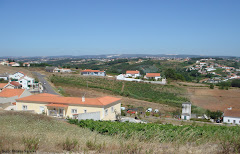BRENT TODERIAN
JUL 27, 2012
Arguably the greatest challenge to any host city is creating the Olympic Transportation Plan. The requirements for dedicated lanes and security-related bridge or road closures are a huge handful. The need to move hundreds of thousands of ticket-holders and tourists around city-regions is a staggering logistical puzzle for any host city.
In Vancouver, it was determined that for the Olympics to function, we had to decrease regular car trips by 30 percent. Vancouver is already a city that has had significant success moving people from cars to walking, biking and transit over several decades. Dropping car trips dramatically further would be no simple task.
From the start though, Vancouver saw this challenge as a huge opportunity. Dropping car trips so significantly would be a glimpse into the future, of a transportation system needed with significant population growth. Essentially our Games could potentially represent the largest traffic trial in North American history!
It worked. During the Games, transit trips jumped from 38 percent to 51 percent of the overall trips in the city, and walking and biking trips doubled.
In all, over 60 percent of all trips made during the Olympics were made by walk/bike/cycle, up from 40 percent. Ironically many of our Olympics-mandated requirements, such as dedicated buses to move officials around downtown, were cancelled because those same officials really enjoyed the walk.
Most importantly, post Olympics research found that over a quarter of those who got out of their cars and tried transit, biking and walking, stayed out of their cars after the Olympics ended, and many more came back to transit in the intervening years, citing the Games as a perception-changer.
In short, the largest traffic trial in North America was wildly successful. It gave us the glimpse we wanted of the future, and set us on a path that now includes considering removing Vancouver’s viaducts, and our recent Greenest City goal of 50 percent of trips by walk/bike/transit by 2020 (maybe sooner). The Olympics moved us to think about our movement differently, a powerful legacy.
The 2010 Games were a key moment and catalyst in the evolution of our model of urbanism, often referred to as Vancouverism. I hope other potential host cities, and the Olympics movement itself, can benefit as much as we have from these insights.
Images courtesy of the City of Vancouver
in:
http://www.theatlanticcities.com/jobs-and-economy/2012/07/3-lessons-every-olympic-city-should-take-heart/2732/
19 de agosto de 2012
Subscrever:
Enviar feedback (Atom)















Sem comentários:
Enviar um comentário